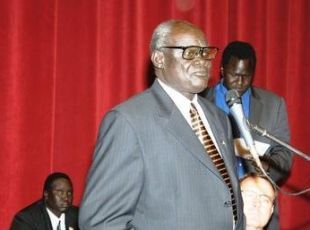South Sudan holdout rebel leader advocates options over number of states
October 14, 2016 (JUBA) – A leader of an armed factions who did not join the 2015 peace agreement, is advocating two solutions to end disputes resulting from a unilateral presidential decree expanding the number of administrative units to 28 states from the constitutionally recognised 10 states .

President Salva Kiir, on 2 October 2015, issued presidential order dissolving state government and legislatures and expanded the number of states from a previously constitutionally recognised 10 state to 28 states in violation of the peace agreement which recognises 10 states.
“This presidential order created land disputes between communities and made it impossible to enshrine the agreement into the current transitional constitution”, said Changson, according to a proposal extended to Sudan Tribune.
The proposal, which is dated on 16 September, advocates freezing the presidential order creating 28 states and revert to 10 states as the first option or creating 36 states as the last option to address land disputes. The proposal, however, fell short of how it would address concerns that the presidential decree itself divided some communities and annexed their lands to others.
It also did not address economic and political issues as many are concerned with how a large local government structure could economically be sustainable and socially cohesive amid declining resources.
The proposal divides the Upper Nile State into five states and leave Malakal town with a municipality status. It does not mention under which state it would fall if given municipality status. It further divides the Unity State into four separate states and leave Abiemnom with the status of municipality, without clarifying under which state it would fall.
Jonglei state, according to the proposal, should be divided into six separate states. It spilt Eastern Equatoria into two states and gives Raja County the status of a state separate from Wau and counties in Aweil to which it has been annexed, according to the presidential order. The proposal, however, did not split Tonj, Western and Eastern Lakes, Gok, Terekeka, Gbudue, Yei, Jubek, Aweil and Aweil East states into new more states.
All the opposition groups have rejected the creation of 28 states but agree on the need to review the 10 states. In the peace agreement it was agreed to discuss the matter and to reach a consensus to be endorsed in the new constitution.
(ST)
(ST)
